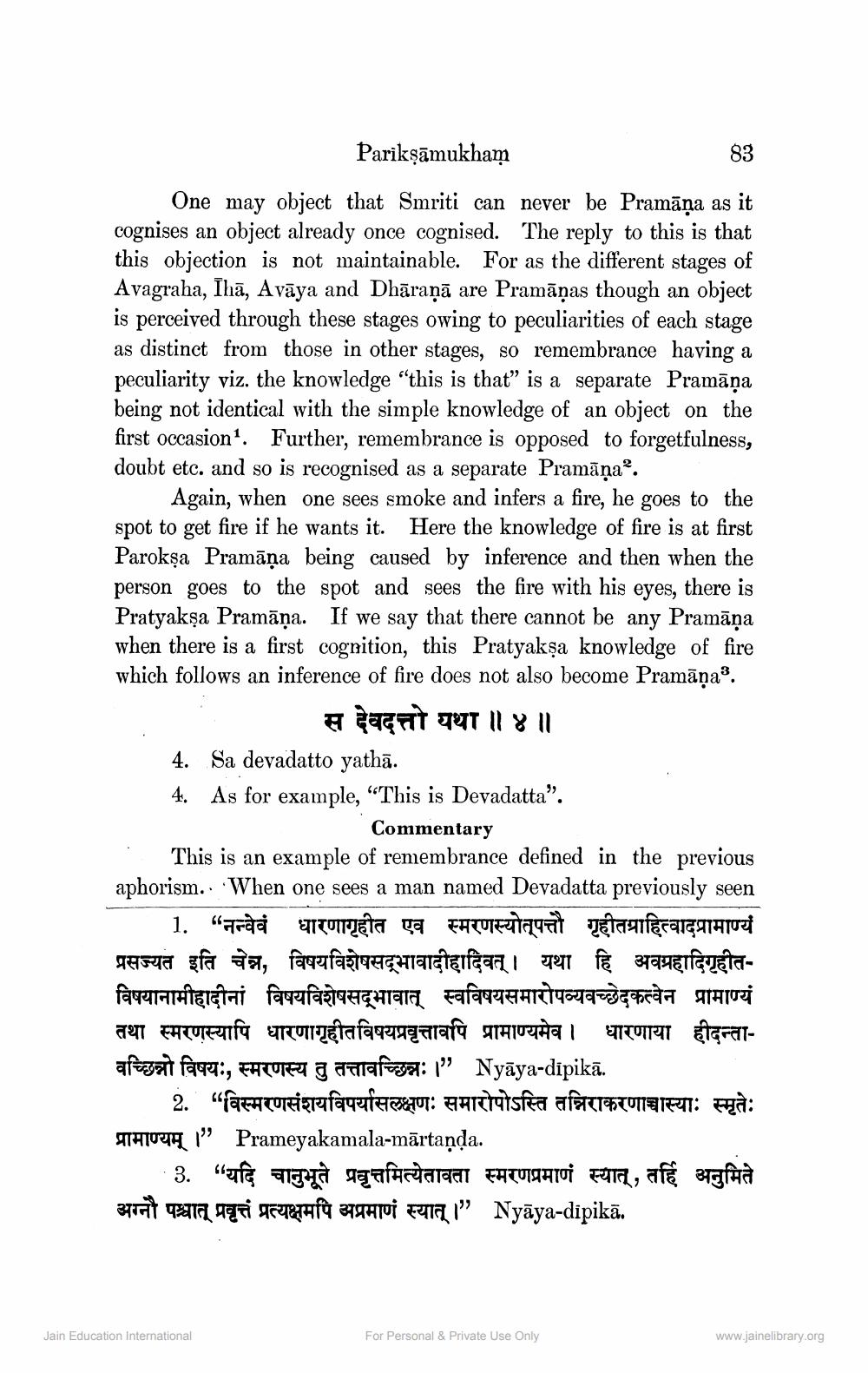________________
Parikṣāmukham
83
One may object that Smriti can never be Pramāņa as it cognises an object already once cognised. The reply to this is that this objection is not maintainable. For as the different stages of Avagraha, Iha, Avaya and Dhāraṇā are Pramāņas though an object is perceived through these stages owing to peculiarities of each stage as distinct from those in other stages, so remembrance having a peculiarity viz. the knowledge "this is that" is a separate Pramāņa being not identical with the simple knowledge of an object on the first occasion 1. Further, remembrance is opposed to forgetfulness doubt etc. and so is recognised as a separate Pramāņa2.
Again, when one sees smoke and infers a fire, he goes to the spot to get fire if he wants it. Here the knowledge of fire is at first Parokṣa Pramāņa being caused by inference and then when the person goes to the spot and sees the fire with his eyes, there is Pratyakṣa Pramāņa. If we say that there cannot be any Pramāņa when there is a first cognition, this Pratyakṣa knowledge of fire which follows an inference of fire does not also become Pramāņa3. स देवदत्तो यथा ॥ ४ ॥
4. Sa devadatto yathā.
4. As for example, "This is Devadatta".
Commentary
This is an example of remembrance defined in the previous aphorism. When one sees a man named Devadatta previously seen
1. “ नन्वेवं धारणागृहीत एव स्मरणस्योत्पत्तौ गृहीतग्राहित्वादप्रामाण्यं प्रसज्यत इति चेन्न, विषय विशेषसद्भावादीहादिवत् । यथा हि अवग्रहादिगृहीतविषयानामीहादीनां विषयविशेषसद्भावात् स्वविषयसमारोपन्यवच्छेदकत्वेन प्रामाण्यं तथा स्मरणस्यापि धारणा गृहीतविषयप्रवृत्तावपि प्रामाण्यमेव । धारणाया हीदन्तावच्छिन्नो विषयः, स्मरणस्य तु तत्तावच्छिन्नः । " Nyāya-dipika.
2. “विस्मरणसंशयविपर्यासलक्षणः समारोपोऽस्ति तन्निराकरणाच्चास्याः स्मृतेः प्रामाण्यम् ।" Prameyakamala-mārtanda.
3. "यदि चानुभूते प्रवृत्तमित्येतावता स्मरणप्रमाणं स्यात्, तर्हि अनुमिते अग्नौ पश्चात् प्रवृत्तं प्रत्यक्षमपि अप्रमाणं स्यात् ।” Nyāya-dipikā.
Jain Education International
For Personal & Private Use Only
www.jainelibrary.org




